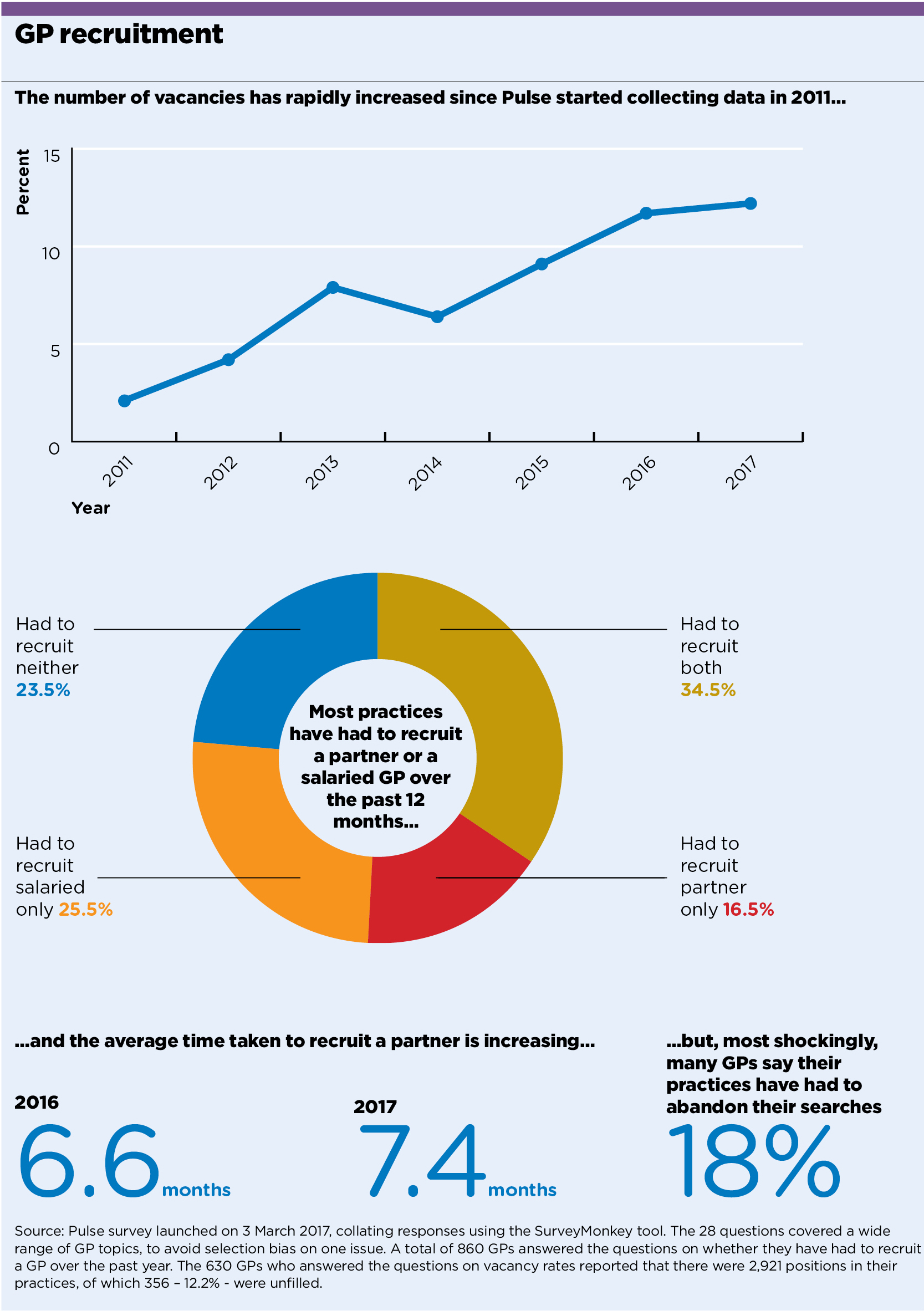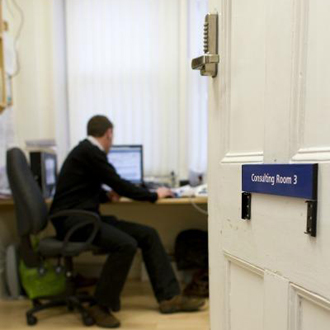Exclusive Almost one in five practices has had to abandon searching for a new GP as vacancy rates have hit their highest ever, a shocking Pulse survey has revealed.
Pulse’s annual practice vacanies survey was answered by 860 GPs and reveals that 12.2% of all positions are currently vacant – an increase from the 11.7% reported at the same time last year.
More worryingly, 158 said they had to give up recruiting a GP in the past 12 months after unsuccessful attempts.
The survey – the only longitudinal data available on this subject – also reveals that the average time taken to recruit a GP partner has lengthened by almost a month over the past year.
GP leaders say that the increase in vacancy rates is ‘staggering’, and that the lack of staff are heaping pressure on other GPs, with practices having to resort to hiring non-GPs to fill the gaps.
GPs have also reported having to close down their practices after failing to recruit a partner.
Pulse has run its vacancy survey since 2011, when the rate of positions vacant was 2.1%, which has rapidly increased in the years since.
NHS England’s ‘GP Forward View’ last year attempted to address the GP recruitment crisis through a £500m emergency fund, that was in part used to offer incentives for GPs to remain in post, return to the UK and work in under-doctored areas.
However, official figures from NHS Digital revealed that the number of full-time equivalent GPs actually decreased in the six months after the announcement, which hasn’t yet had the desired effect.
Dr Charlotte Ferriday, a GP in Devon, said that her practice was forced to close after its sole partner had a heart attack and wanted to come back as a salaried GP.
She said: ‘We asked all locums and acquaintances about possibly coming to work at the surgery as a partner. We advertised on the Devon LMC website. The practice attempted a merger with a bigger practice that fell through.
‘No-one wanted to be the sole partner at a small practice of 2,800 patients. It is hard work to run a practice and much harder doing it as a sole partner.’
Dr Richard Vautrey, deputy chair of the BMA’s GP Committee, said: ‘The high number of positions vacant and one in five practices abandoning their search) is another sign of the recruitment crisis with many practices struggling to find GPs.
‘This is adding to the pressure of the remaining staff. Some practices are looking to recruit therapists, pharmacists and other health professionals but of course they are not a replacement for a GP. There needs to be a real step-change in recruitment initiatives to ease the pressure on GPs.’
Professor Helen Stokes-Lampard, chair of the RCGP, said: ’We know that practices across the country are finding it really difficult to recruit GPs to fill vacant posts, and the degree to which this problem has increased over the last six years is staggering. In the most severe cases, not being able to recruit has forced practices to close, and this can be a devastating experience for the patients and staff affected, and the wider NHS.’

p22 june 2017 data lowdown final
Pulse October survey
Take our July 2025 survey to potentially win £1.000 worth of tokens













